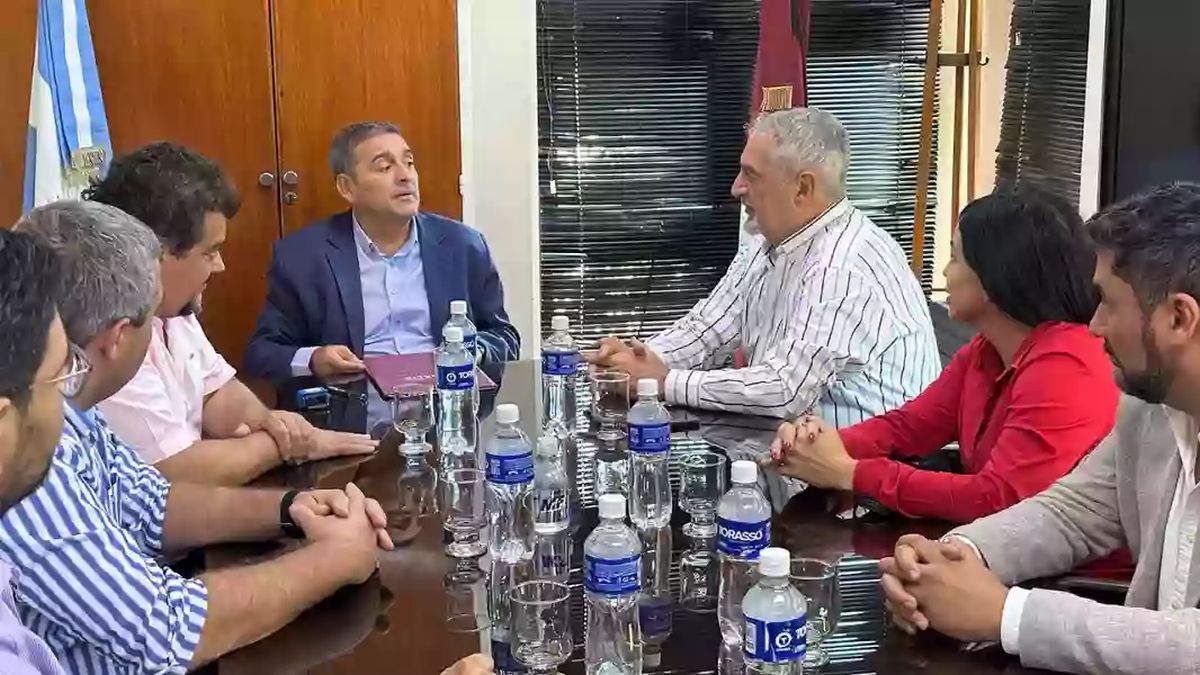Under this agreement, the health ministries of both provinces undertake to establish and implement measures that reduce and/or eliminate administrative or bureaucratic formalities, to favor patients with permanent residence in each province.
Health: reciprocity agreement between Jujuy and Salta
With this objective, the Ministries agreed to provide mutual collaboration in all activities, so as to guarantee reciprocity of care in the public hospitals of both provinces. To this end, if necessary, specific and complementary agreements may be signed, detailing particular and technical aspects of the activities to be carried out.
The framework agreement will have a duration of three years, with automatic renewal for equal and successive periods, unless the parties expressly decide to terminate it.
The head of the Salta health portfolio celebrated the signing of this agreement. “It reflects a leap in quality in NOA Public Health. It is a great advance for two sister nations. The objective is to optimize resources and avoid disproportionate investments in the health system,” he said.
Health Agreement.jpg
The Ministers of Health of Salta and Jujuy, during the signing of the reciprocity agreement.
He added that “We want to do it in a shared way, with Minister Bohuid, guaranteeing that both people from Salta and Jujuy can safely access the hospitals in both provinces. “This initiative follows the joint guidelines of our governors and aims to strengthen the Norte Grande.”
For his part, the Minister of Health of Jujuy highlighted the predisposition of his counterpart Mangione. “We share a broad agenda on topics such as epidemiology, human resources, medical specialties, supplies and equipment. If society finds us working together, both towns will benefit.”
Salta: medical care for non-resident foreigners fell by 95%
This week, meanwhile, the governor of Salta, Gustavo Saenzhighlighted that since the province decided to charge medical care to non-resident foreigners, demand from that sector fell 95% in public hospitals compared to the previous year.
“Today we are seeing the results of a measure we took 10 months ago, to charge foreigners for care in public hospitals,” The president expressed when referring to the savings of resources that allowed the province to acquire two new ambulances.
Embed – https://publish.twitter.com/oembed?url=https://x.com/GustavoSaenzOK/status/1869390922330374185?ref_src=twsrc%5Etfw%7Ctw camp%5Etweetembed%7Ctwterm%5E1869390922330374185%7Ctwgr%5Ebf05784298ad93ed469f40bdebc0e7a772a508b6%7Ctwcon%5Es1_&ref_ur l=https%3A%2F%2Fambito.backend.thinkindot.com%2Fbackend%2Feditor20%2Fphp%2FObjectTinyMCEIframe.php%3Ffield%3Dbodyclas sName%3Dheight%3D600pxmaxheight%3D620minheight%3D400plugings%3D20paste20tdlinkNew20lists20advlist20autoresize20tdparagra ph20tdhighlight20tdgrouper20tdembed20tdclipboard20liveblog20tdwordcount20noneditable2020tablewidth%3D600pxtoolbar1%3D20 undo20redo2020styleselect2020alignleft20aligncenter20alignright20alignjustify2020bold20italic20removeformat2020backcolor 2020bullist2020numlist2020tdlinkNew2020tdparagraph2020tdhighlight2020tdgrouper2020tdembed2020liveblog20wordcount20table allow_header_formats%3D1allow_inline_formats%3D1ignore_parser%3Dtimestamp%3D17347194989017614&partner=&hide_thread=false
We continue to strengthen the health system with the incorporation of two new medium complexity ambulances destined for the towns of Las Lajitas and Coronel Juan Solá, Morillo station
This acquisition was possible thanks to the savings generated by the… pic.twitter.com/sZ5KZveg0y
— Gustavo Sáenz (@GustavoSaenzOK) December 18, 2024
In that sense, Sáenz stated that “since the care was free, health tours were even organized to receive treatment in the hospitals of Salta, and that was detrimental to the rights of the people of Salta,” and added that “The results are visible and other provinces are already replicating this initiative, such as Mendoza, Jujuy and Santa Cruz.”
The Governor said that care for foreigners in public hospitals in Salta has been reduced by almost 95%, which has a favorable impact on the availability of beds and supplies to prioritize patients from Salta.
The president of Salta stated that “it was not a capricious measure, it was necessary to take it at a difficult time, because we saw that we were short of beds, that the medical supplies were not enough, that the human resources ended up tired of caring, caring and caring… and that the “Surgeries that were scheduled for patients from Salta ended up being referred over time to attend to those who came from outside.”
Source: Ambito
I am an author and journalist who has worked in the entertainment industry for over a decade. I currently work as a news editor at a major news website, and my focus is on covering the latest trends in entertainment. I also write occasional pieces for other outlets, and have authored two books about the entertainment industry.




